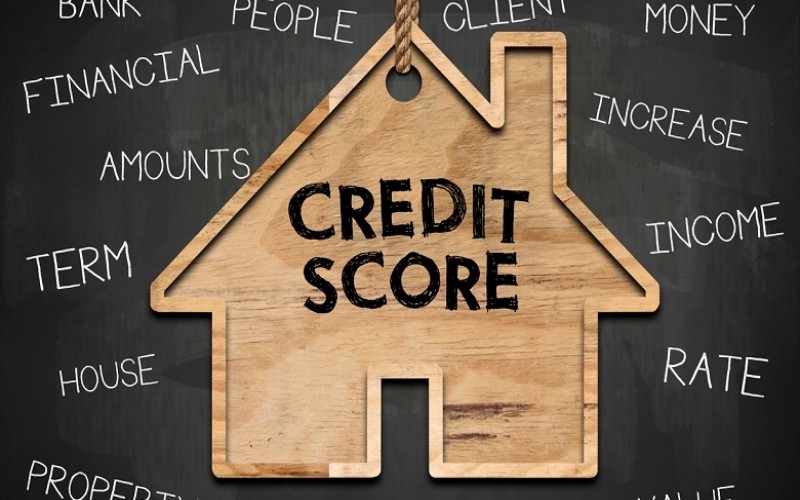A credit score is a standard on which your financial health is judged. The lenders get to know how responsible you have been with your credits just by taking a look at your credit score.
The bigger your score is, the easier approval you’ll get for new credits or loans. A good credit score can also let you obtain the lowest interest rates whenever you take some credit.
A top-notch credit score can save you thousands of dollars throughout your life. You’ll get better rates and more accessible credits on various sectors like auto loans, mortgages, house rentals, car rents, life insurance premiums, etc.
Those with good credit scores are perceived as borrowers with a lower risk attached to the lender. So, you can get better offers and rates for your business with some extra perks, depending on your bank or creditor.
To improve your credit score, you need to know how the score is calculated and which things can better the score. On that note, here are some excellent ways to improve your credit score:
- Make credit file
Your credit file is complete data about all your credit accounts combined into one package. It’s one of the essential parts of any Financial Education regarding credits. You need to have some credit accounts that are active currently and a good reputation for building a solid credit file.
For a start, you can consider some cards from secured lenders or small loans known as credit-builder. Another option can be those credit cards that offer rewards for no annual charge at all to boost your credit score. Finally, you can also opt for authorization in a credit card that belongs to someone close and is pretty responsible in terms of spending.
Also Visit: Best Bad Credit Payday Loan – Take Out Up To $5000 Same Day!
If you don’t have any credit files, get one with the help of a bureau like Experian. With a free membership, you can get a credit report. You can also use the Boost feature for a fee that lets you add various bills to your FICO Score, like cell phone bills, streaming platform charges, and utility bills.
- Make payments on-time
Over 90% of the best lenders use FICO Scores to determine a borrower’s eligibility. It consists of five aspects: payment history (35%), credit usage (30%), age of the credit accounts (15%), inquiries about new credits (10%), and credit mix (10%).
So, your record of paying your dues is the most significant aspect in deciding your credit score. The longer you’ve cleared your payments on time, the better your credit score will be.
And the best way to achieve this stability is to never miss your credit card or bank loan payments by over 29 days. Getting late for more than 30 days can negatively affect your credit score.
You can negate this by opting for automatic payment. This way, all your minimum dues will be cleared immediately. And if you’re having problems, contact your lender to find a solution and get some hardship alternatives.
- Don’t apply too much too frequently.
Your credit history can be requested through two inquiries: Soft and hard. Soft inquiries have no negative impact on your credit score. Some of them are: inspecting your credit accounts, allowing employers to check your file, checks performed by various financial institutions and credit card companies, etc.
But the problem starts if you make too many hard inquiries too frequently. Banks or lenders will presume that your finances are unstable. Hence, you’ll be regarded as a higher-risk candidate. Some of the most common hard inquiries are: applying for a credit card, auto loan, mortgage, etc.
Too many inquiries will result in a reduction of your credit score quite considerably. So, if you’re trying to enhance your credit score, don’t apply for a new credit card for a period of time, and don’t open new credit accounts recklessly as they reduce your average account age.
- Use debt consolidation
If you’ve gathered quite a few outstanding debts, then you should consider taking a loan to consolidate all your debts from a credit lender or a reputable bank.
Pay all your debts with one loan, and then you’ll have to concern yourself with just that one. It’ll save you a lot of hassle, as you don’t need to track all the different debts and their payments.
And if you can grab a lower interest rate for that debt consolidation loan, you’ll pay the whole debt much faster and make some crucial saves. It’ll boost the credit utilization ratio and, ultimately, the credit score.
- Track your credits
You can take advantage of a credit monitoring service to track down all the ups and downs of your credit score. Many of these are free of cost. They monitor every little change you make: paying off credit, opening a new account, etc.
The best ones also protect you from financial fraud and identity theft. For example, you’ll be notified if a credit card shows up in your credit file that you have no idea of, and you’ll be able to contact the lender to report the misinformation and potential fraud.
Also Visit: Doratoon Review: No.1 Video Maker to Create Facebook Video
CONCLUSION
In the modern-day lifestyle, using credits is a part of life. It lets us enjoy things that otherwise would remain out of budget. But to get those credits or loans, you need a good credit score.
So, follow these 5 tips to churn out a good credit score and enjoy financial freedom like no other.













